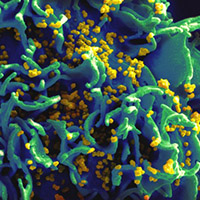





Engaging in research projects outside the classroom during undergraduate and postbaccalaureate years is important.
![]()
The emphasis during these years is on acquiring the fundamental knowledge to master scientific research or clinical discipline. An experienced mentor is critical to successful training.

![]()

Research during this period is increasingly sophisticated and independent. The selection of a mentor during this period is very important for its impact on the researcher's future professional career.
![]()
The main goal for these early career researchers is to establish themselves and their teams as experts in their fields of research.

![]()

Established researchers are focused on their independent research, and use their broad knowledge and scientific expertise to impact public health and society at large.
Undergraduate and Postbaccalaureate Education
Predoctoral Training/Clinical Doctorate
Postdoctoral Training/Clinical Residency
Early Research Career Development
Investigator Development and Mentoring
NIH programs help prepare individuals for careers in biomedical, behavioral, social, and clinical research.
Interactive guides describe NIH programs and links to support training and career development of biomedical scientists: